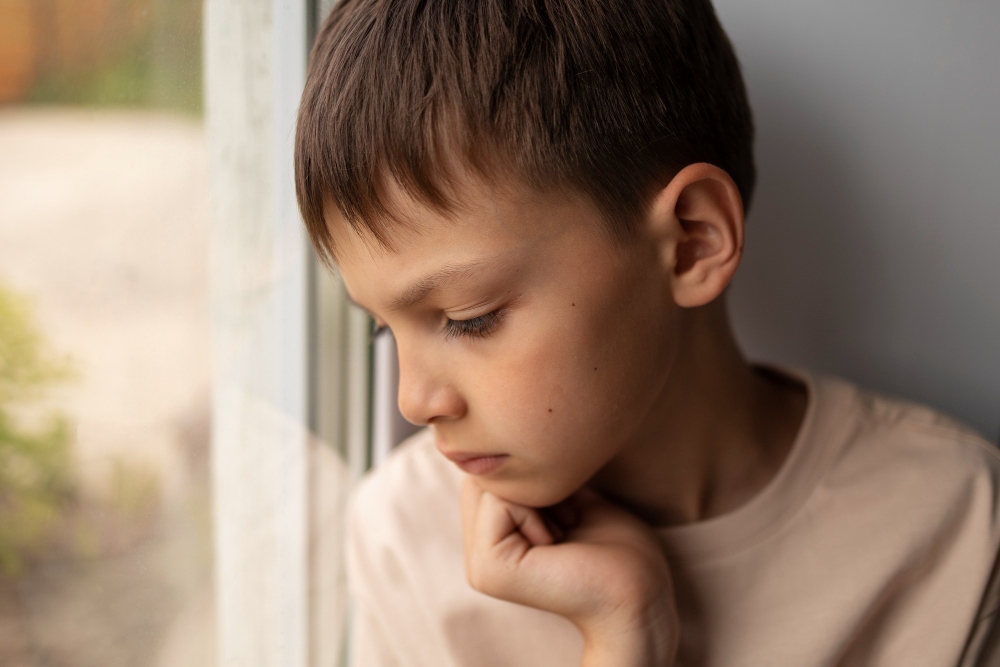I have thought about writing her a letter—something long and deliberate, something shaped by memory and moral clarity, something that names what occurred and places it in her hands before the door finally closes. The idea moves through me with a kind of gravitational pull, neither urgent nor calm, just pressing and circling. I return to it often. I test the weight of the words in my mouth while walking across the living room.
I mutter words on my dog walk, trying to think what I would say if I came face-to-face with her again, after the graduation ceremony, if my daughter wasn’t with me.
My testimony
Since May, I have written more than 150,000 words. The writing came quickly, forcefully, uninvited and unstoppable, a torrent from the deep in my body.
The sentences assembled themselves at dawn, during laundry, after phone calls, through tears, on the toilet, unloading the dishwasher, voice dictated into my phone when I woke suddenly in the night.
I wrote because my children were harmed and keeping those stories contained in my body was like a cancer poisoning everything. The muscles around my throat have become so tight and ropey from the thousand times I’ve had to swallow my protests and smile when I felt like lunging across the table and strangling the person in front of me for harming my children. Like my son tried to strangle the kindergarten teacher, only slightly less agile, I’d guess.
Swallowing those animal reactions is like laying down your body in front of a bullet train, each word not spoken like steel slicing through your heart.
The constant trepidation of trying to balance enough advocacy, but not so much that your child would be more vulnerable because they despised you. Not knowing they would hate you anyway.
Trying to perform likable and neurotypical so they would have empathy. Because parents aren’t allowed to be neurodivergent or disabled.
The words ricochet around my chest cavity: that’s not fair, that’s not what he needs, you’re not understanding what she’s trying to communicate. Such basic information that shouldn’t seem controversial and yet every time I try to contribute anything they take it as a personal affront, like I am saying they are not good at their jobs and they don’t know everything…
Her wince
Still, I circle the idea of a letter.
I imagine the page beginning with her name and ending with mine,
Just a Parent
a clean transmission, a poison dart.
I imagine her reading it alone, maybe at a desk, maybe in a car, and her forehead crinkling like it has so many times before when she was performing concern, gaslighting me, trying to treat me like I was hysterical.
Her forehead will crease but she will mean it. Her consternation will be displayed large across her face and her lips will purse like they do when she’s very upset and I imagine her breath catching and her fists slowly squeezing shut and feeling for a moment pain—bright, sharp, undeniable.
The transfer
She is moving to another school with her carefully tended optics—her reputation for composure, her ability to speak warmly about inclusion while saying nothing concrete.
She is probably already being welcomed by incoming teachers, local parents, and district administrators, arriving with a smile, a confident stride, a gentle voice, and a blank slate, carrying a story that will appear whole and polished—an image of wisdom, warmth, clarity, vision, and composure.
She will build new relationships grounded in ease and distance, offer kindness and deferral, and continue the same pattern that devastated my children.
A flint stone
If I send a letter now, it will strike like steel against flint—each word sharpened by memory, each sentence a collision capable of sparking something volatile and undeniable.
She will remember our names, our meetings, our words, our silences, my child’s face, the shape of my advocacy, the questions I asked, the documents I sent, the interventions I requested, the hallway where I stood after school, the story I told, and the grief I carried into the room, and that memory remains available for just a moment longer, before hundreds of new faces fill hallways with new promise.
The letter would ignite the tinder she left scattered—forgotten moments, suppressed objections, thin justifications—and lay down heat where weight belongs, naming her as the person who upheld conditions that harmed my children, enabled decisions that erased their safety, protected the institution, and withheld care.
The memory lives
My memory for certain circumstances and places is 4K. While others might only remember the sequence of events or a single thing that was said, I remember the slightly sickly smell of the classroom, the sound of the flickering lights, the tone in her voice pinched and polite and toxically positive, how her lip twitched when she was speaking and her hand balled several times like she was trying to squeeze something to find the patience to endure my insipidness. And a whirl of memories like this careens by me as I trouble the idea of writing her the letter. I enjoy the idea that it might lodge under her armour of toxic positivity, like an arrow finding a dragon’s heart.
I want her to feel the truth
Could I say something that will rip her heart open just one time, as badly as what she has ripped mine to pieces, so many times? How could I construct the perfect letter that delivers the truth like a blow to the centre of her chest? Would she even take it in? Would she be able to absorb any of it? She seems so entangled in the fiction of her own goodness that I doubt any reality could puncture it.
-
Institutional gaslighting of caregivers
You refuse to forget, because forgetting would mean abandoning your child’s reality—and you have already watched too many adults do that with a straight face and a professional tone. You refuse to downplay what has happened, because the harm is not theoretical—it lives…
I catalogue our sorrow
I try to make sense of it all by naming the mechanisms: the procedures, policies, cultural defaults, affective performances, the careful little workarounds that made my children disappear. I scroll through PDFs late at night, dragging highlights over words like “reasonable” and “sufficient” and “regulation” until they blur.
I watch the shape of institutional violence form in silence, delay, omission, false neutrality. I write about how the word inclusion means nothing when the body of the child is still shaking alone in the hallway.
She succeeds
She is very good at what she does. She builds intimacy through tone, stability through repetition, and power through silence. She lets you speak and watches carefully, letting you exhaust your evidence before speaking in a voice so steady and sure that your own feels foolish. She affirms feelings and then takes no action. She remembers your child’s name and then leaves them unsupported. She carries herself like a person who has done everything possible. Her affect is unshakeable. Her tone is containment. Her kindness is a filter.
She performs concern while children collapse. She protects staff comfort while families lose months to misdirection. She observes harm and makes it invisible by naming it as challenge, by framing it as complexity, by describing it as transition. She disappears children through process, paperwork, performance. And then she is thanked for being patient.
She revised our story in real time, adjusting details and omitting context to maintain the narrative she preferred—one where she remained composed and capable while we were framed as fractured and unreasonable. She forgot what she never fully acknowledged. She treated our grief as noise and our concerns as threats. She labelled our urgency as conflict. And through it all, I remembered every word, every gesture, every silence.
-
Not a stick in the mud
When I told another mom recently—someone kind, someone well-meaning, someone whose son used to play with mine back when things were easier—that I was feeling fragile about him being home since March, and that it had all gotten heavier than I expected, she…
Forgiveness requires change
I hold anger the way someone might hold a blistering-hot pan with bare hands because the kitchen is filling with smoke and the children are still inside; it burns, but it clarifies what matters most and forces action while everyone else insists the fire isn’t real.
I feel I could forgive her if we weren’t still burning alive. I survived the fire season she created. I held my children while they unravelled. I wrote things down and am slowly putting them here, as fast as I can hold these embers of pain in my hands.
She gets to start over
She will walk into a new building and be received like sunlight, her presence reassuring, her tone steady, her documents complete, her language aligned with district goals, her image affirmed by colleagues as calm, responsive, dependable, good with parents. She will describe herself as someone who centres student voice and believes in collaboration, a steady hand in a challenging year, a lifelong learner with an open door. She will begin again. The script will run smoothly.
And another child will vanish beneath her smile.
Our story
I have thought about writing her a letter, but it always felt too much like handing her something—another chance to judge, another reason to perform concern, another excuse to decide I was the problem. She is surrounded by people who reward the performance, protect her image, and uphold the silence. They saw what happened and chose comfort. She saw what happened and chose distance.
This is the epistolary form the institution cannot intercept, reframe, or ignore. I wrote it with my whole body. I did not write it for her.
I wrote it because memory is a form of protection. I wrote it because the story deserves to outlast her version. I wrote it because my children lived it. I wrote it because I am the one who remembered everything.









